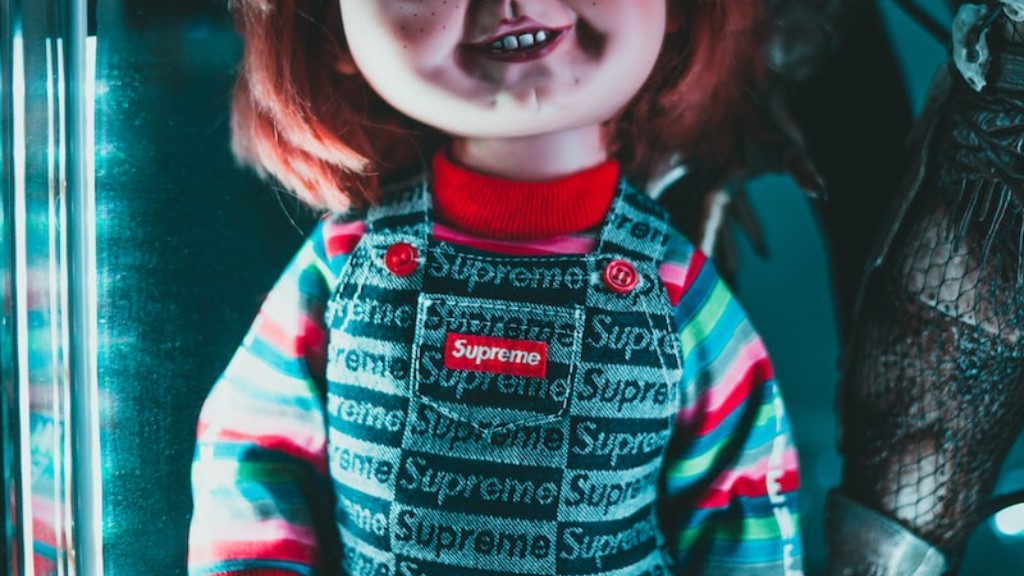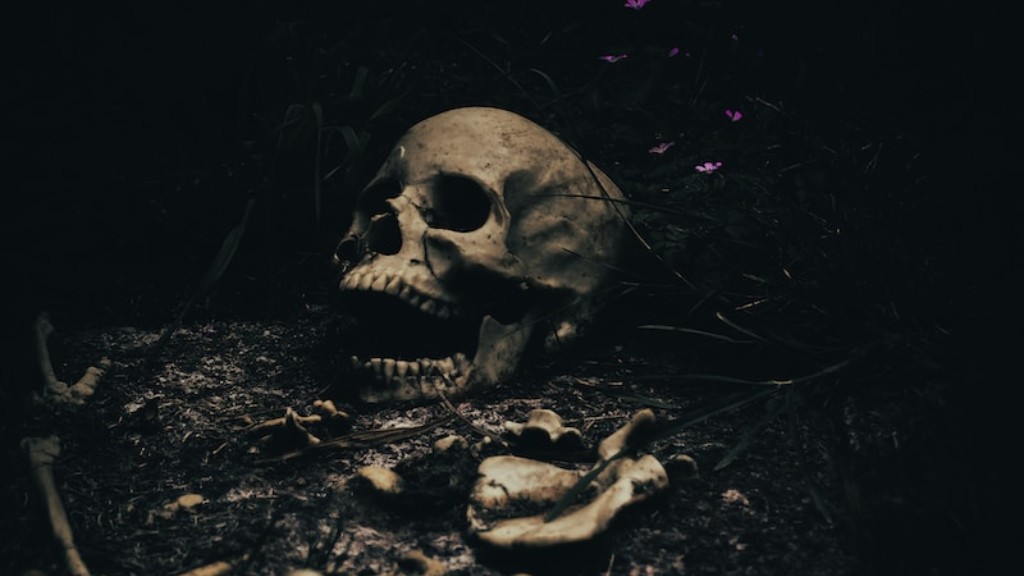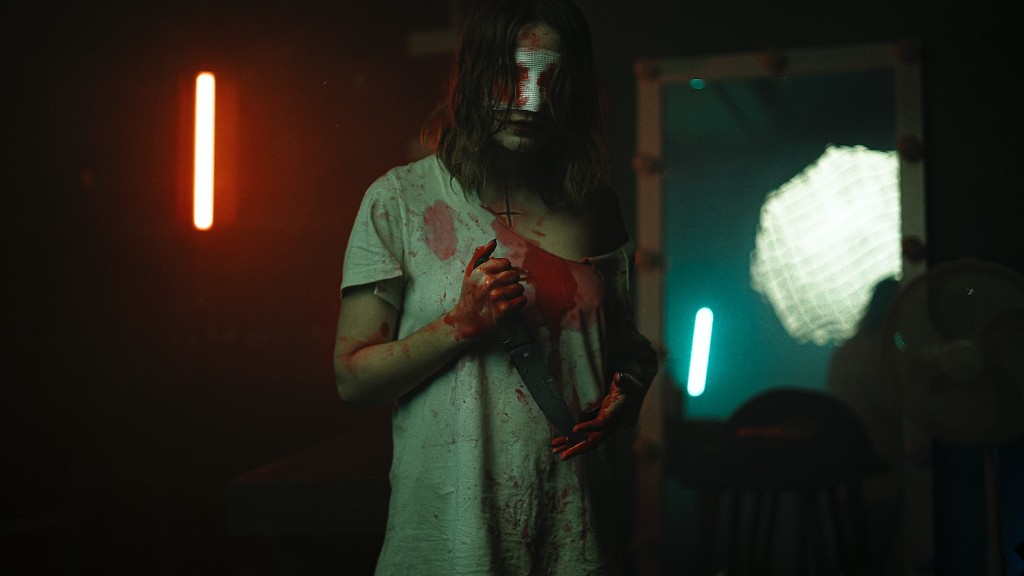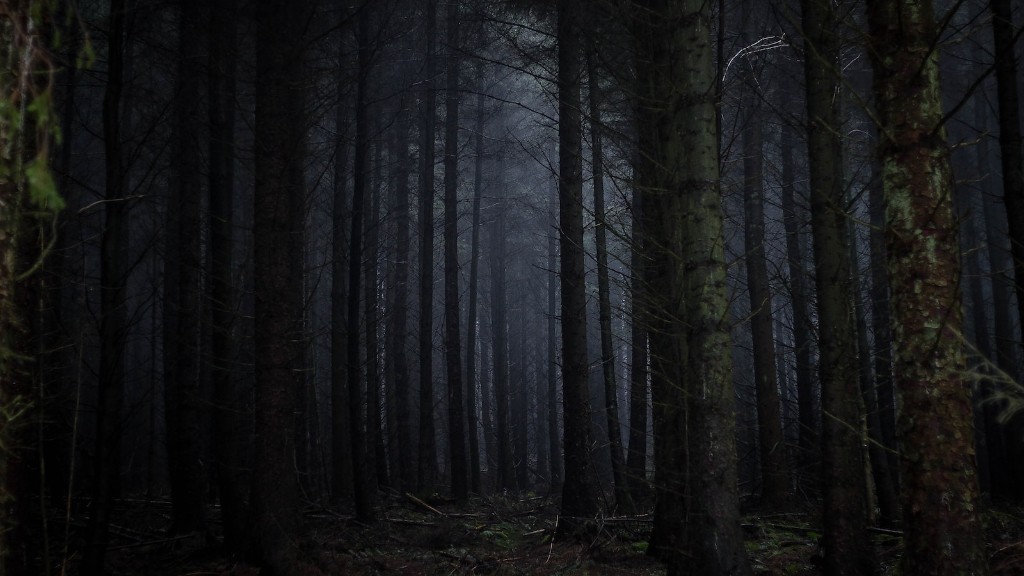Horror movies have been around since the late 1800s, and they continue to be popular today. Many people enjoy being scared by horror movies, but why do they have this effect on us? Researchers have found that there are several reasons why horror movies scare us. One reason is that they trigger our fight-or-flight response. This is the same response that we would have if we were in a dangerous situation. When we see something that scares us in a movie, our body releases adrenaline and other hormones that prepare us to fight or run away. This response can make our heart rate increase, make us breathe more quickly, and make us feel more alert. another reason why horror movies scare us is that they often involve situations that we fear in real life. For example, we may be afraid of the dark, of being alone, or of being killed. Horror movies often take these fears and amplify them, which can make us feel even more scared. Finally, horror movies often contain jump scares, which are sudden, unexpected moments that can make us jump out of our seats. Jump scares work because they startle us and catch us off guard. This can make us feel more scared because we are not expecting them.
Horror movies are designed to scare us. They use a variety of techniques to create a feeling of suspense, fear, and anxiety. These can include jump scares, creepy music, and suspenseful scenes.
How does horror movies affect us?
It is important to be aware of the potential consequences of watching horrific images, as they can have a negative impact on our mental health. If you are feeling anxious or panicked, it is best to avoid watching these images altogether. If you do choose to watch them, it is important to do so with caution and be aware of the potential triggers that could worsen your symptoms.
It is pretty amazing what one movie session can do for your brain activity. Multiple studies have found that watching scary scenes can actually increase your level of adrenaline, release neurotransmitters, and improve your overall concentration and alertness. So if you’re looking to get a little boost in your cognitive abilities, consider heading to your local horror movie theater!
What does psychology say about people who like horror movies
Sensation seeking is a personality trait that refers to a need for novelty, excitement, and thrill in one’s life. Some research indicates that people with a higher sensation-seeking trait tend to seek out and enjoy horror-related experiences more than those with a lower sensation-seeking trait. This may be because people with a higher sensation-seeking trait get a rush of adrenaline from feeling fear, which can be addicting. So if you’re the type of person who loves getting scared in a horror movie or haunted house, it may be because you have a higher sensation-seeking trait.
Filmmakers and producers use a variety of techniques to create suspense and tension in their films. By using elements of mystery, gore, terror, and shock, they are able to keep audiences on the edge of their seats, anticipating the next move. Different mise-en-scene, including lighting, costume, and incongruous sounds, can all contribute to the suspense leading up to the big reveal.
Are scary movies good for your mental health?
There is some evidence to suggest that watching scary movies can help people with anxiety feel more in control. In one study, Clasen found that anxious people who watched scary movies reported feeling better afterwards. One possible explanation for this is that watching scary movies provides a way for people to confront their fears in a controlled setting. This can help them to feel more in control of their anxiety and may help to reduce their overall anxiety levels.
Watching horror films can be a soothing process for people with anxiety for a few reasons. First, it can help us to regulate our emotions by providing a release for pent-up feelings. Second, it can help us to feel more in control of our emotions by providing a sense of suspense and anticipation. Lastly, it can help us to connect with others who have similar interests, providing a sense of community and support.
Why is horror so addicting?
Horror is often seen as an addictive genre because it is so exciting. The build-up to the scare and the impact of the scare tend to be greater than any other genre. Horror also responds much more to human nature than any other genre. We are naturally curious creatures who want to explore the dark and the unknown. It is this curiosity that often leads us to seek out horror movies and books. We also enjoy being scared and pushing ourselves to see how much we can handle. Sometimes we are also drawn to horror because it is seen as taboo or something that we are not supposed to have. Whatever the reason, horror is an addicting genre that keeps us coming back for more.
Many people enjoy horror movies because they provide a way to release tension and relax. Horror movies can help take your mind off of real life problems and allow you to focus on the movie. After the movie is over, you may feel a sense of relief.
What does liking horror movies say about you
Horror preference and enjoyment of horror have been linked to several personality traits and cognitive/affective traits, including sensation seeking, empathy, theory of mind, need for affect, and the dark tetrad. Other individual differences that may be relevant include age and sex.
This study found that low neuroticism and high sensation seeking were better predictors of horror movie preference. This suggests that people who are more calm and enjoy seeking new and exciting experiences are more likely to enjoy horror movies. So if you’re looking for a good horror movie to watch, keep these personality traits in mind!
Why do people with trauma enjoy horror?
Addiction to trauma is a real phenomenon that is tied up in biology. That is, the films that we watch that are designed to scare us rev up the body’s sympathetic nervous system, inducing stress and anxiety. In some people, the stress is a welcome thrill. The payoff comes when the movie is over and we are released from the suspense.
Horror fans are often thought of as being cruel and heartless, but a new study has found that this is not the case. In fact, horror fans may actually be more kind and compassionate than others. The study, which is published on PsyArXiv, found no evidence that horror fans are any less kind or caring than non-horror fans. In some respects, they may even be more so. This study challenges the stereotype of horror fans as being somehow different from the rest of us. It shows that they are just as kind and compassionate as anyone else.
How does horror scare people
Horror movies can be a fun and adrenaline-pumping way to spend an evening. However, it’s important to remember that they are also stimulating the body’s fight-or-flight response. This response is triggered when the body perceives a threat and causes the release of adrenaline. This can lead to increased heart rate, respiration, and sweating. So, if you’re looking for a truly adrenaline-pumping experience, be sure to choose a movie that will give you a good scare!
There are many different elements of horror movies that can scare us. For some, it may be the fear of death or the dark. For others, it may be creepy, crawly things, or scary places. And for others still, it may be disfigurement, dismemberment, or suspense. What frightens you will depend on your own personal fears. But whatever it is that scares you, one thing is for sure: horror movies are designed to do just that.
Can you get traumatized from a horror movie?
PTSD is a serious condition that can be caused by exposure to traumatic events, including media, television, movies, and pictures. Symptoms of PTSD include re-experiencing the trauma through intrusive distressing recollections of the event, including flashbacks and nightmares. If you are experiencing any of these symptoms, it is important to seek professional help.
During scary movies, our brains release adrenaline, which prepares our bodies for stressful situations. Our sympathetic nervous system responds to the threat and throws us into the “fight or flight” response. This response is characterized by increased heart rate, blood pressure, and respiration. We also might experience a surge of energy, sweating, and increased blood flow to our muscles. All of these things help us to be ready to face a dangerous situation.
Final Words
Horror movies work by playing on our deepest, darkest fears. They tap into our primal worry that something is stalking us in the dark, ready to pounce. They give us a release for our fears, allowing us to safely explore the things that scare us the most. By providing a cathartic release, horror movies help us confront our fears and come out feeling a little bit braver for having faced them.
The scariest thing about horror movies is how they remind us of our own mortality. death is something we all face, and it’s hard not to think about when we’re watching a horror movie. these films also play on our deepest fears, the ones we usually keep hidden. it’s no wonder we’re scared when we watch them.



